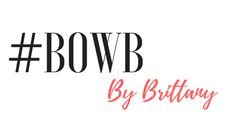“Australians rely on the media to provide facts and interpretations of the world” (The Australian Collaboration) (1). Individuals use a plethora of different media channels, whether it be through TV, newspapers, radio or the internet, to access “news” and to ultimately use this information to make informed decisions, both politically and socially. The media is controlled and owned by a selected few, by the likes of, Rupert Murdoch, Kerry Stokes, Bruce Gordon and James Packer, who cleverly manipulate their power to persuade and put forth their perspectives based on their own ideologies.

Image: ACMA (2)
Rupert Murdoch, an Australian “media mogul“, saturates the media through his immense dominance, ownership and control. For many individuals, “the idea of one man or company controlling a large proportion of the nation’s newspaper and broadcasting interests is an issue of public concern” (BBC) (3). In response to anxiety surrounding the ideological control of the media, the 2/3 rule was introduced in 2006 to prevent a single person or company from controlling more than 2/3 media platforms, for example, commercial radio, television and newspaper (The Conversation) (4). These “fears” can be traced back to as early as the 1930’s from Hitler’s strategic deployment of propaganda in an attempt to create an ideology around a fear for Judaism (Turnbull, 2017) (5).

Image: The Conversation (4)
With Murdoch’s two companies, 21st Century Fox and News Corp, along with significant stakes in Fox News, Fox Sports, the Dow Jones and more, he is able to influence and filter the information that is fed to individuals, thus distorting the way in which people interpret information. Personally, I resort to newspapers and television to widen my understanding on what is occurring within the society in which I live in and the wider world. In turn, I am subjected to reading a particular perspective due to media ownership and control, as the “media moguls” attempt to position and align my beliefs with their own. For example, the following newspaper articles reflect Murdoch’s subjective political position, cleverly creating two different headlines, however sharing identical opinions, ultimately manipulating the reader.

Image: (Middlemost, 2017) (6)
Additionally, media ownership and control has an immense impact on an individual and society at large, which is also evident through China’s authoritarian and unyielding media restrictions. China’s media control revolves around tactics through, “…monitoring systems and firewalls, shuttering publications or websites, and jailing dissident journalists, bloggers, and activists” (Council of Foreign Relations) (7). In turn, China’s government employs individuals to monitor the content and censor what information reaches the public, thus shaping an individual’s understanding of the world. With this, if the government believes certain content is deemed “potentially dangerous”, for example, Wikipedia, Facebook, Twitter, and YouTube, the sites are immediately blocked or “blacked out”.
Why does it matter who owns and controls the media? Although media ownership and control is not as confined as say the likes of China, “It is well known that Australia has one of the highest concentrations of media ownership in the world”. Diversity of media ownership, and therefore media content, is imperative to ensure individuals are given access to a variety of perspectives.
Brittany

(1) The Australian Collaboration. (2015). Democracy in Australia – Media concentration and media laws. [online] Available at: http://www.australiancollaboration.com.au/pdf/Democracy/Media-laws.pdf [Accessed 29 Mar. 2017].
(2) ‘Media Interests’ snapshot. (2017). [image] Available at: http://www.acma.gov.au/theACMA/media-interests-snapshot [Accessed 29 Mar. 2017].
(3) Douglas, T. (2010). Analysis: Murdoch and media ownership in UK – BBC News. [online] BBC News. Available at: http://www.bbc.com/news/uk-12062176 [Accessed 29 Mar. 2017].
(4) Dwyer, T. (2016). Explainer: what changes to Australia’s media ownership laws are being proposed?. [online] The Conversation. Available at: https://theconversation.com/explainer-what-changes-to-australias-media-ownership-laws-are-being-proposed-55509 [Accessed 29 Mar. 2017].
(5) (Turnbull, 2017)
(6) (Middlemost, 2017)
(7) Xu, B. and Albert, E. (2017). Media Censorship in China. [online] Council on Foreign Relations. Available at: http://www.cfr.org/china/media-censorship-china/p11515 [Accessed 29 Mar. 2017].
(8) Pusey, Michael, and Marion McCutcheon. “From The Media Moguls To The Money Men? Media Concentration In Australia”. Media International Australia 140.1 (2011): 22-34. Web. 26 Mar. 2017.

